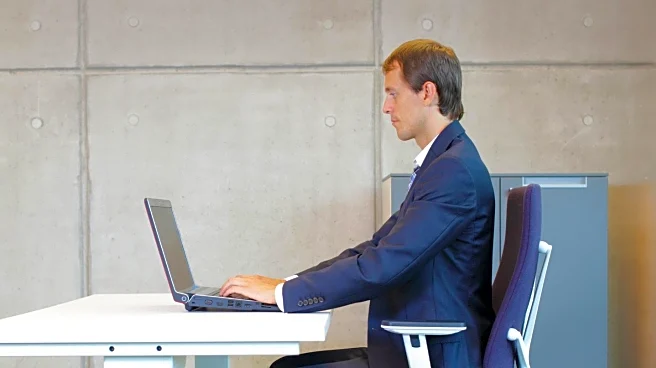What's Happening?
A recent study conducted by researchers from UC Riverside and the University of Colorado Boulder highlights the significant health risks associated with prolonged sitting, even among young, active adults. The study analyzed health data from over 1,000 Colorado residents, with an average age of 33, and found that sitting for eight or more hours a day negatively impacts cholesterol ratios and body mass index (BMI), increasing the risk of heart disease and obesity. The research utilized a twin-and-sibling project to separate lifestyle effects from genetics, revealing that vigorous physical activity can mitigate some of the adverse effects of sitting, but reducing sitting time remains crucial.
Why It's Important?
The findings underscore the inadequacy of current federal exercise recommendations in counteracting the health risks posed by excessive sitting. This has implications for public health policy, suggesting a need for revised guidelines that emphasize reducing sitting time alongside promoting vigorous physical activity. The study's focus on younger adults highlights the importance of addressing sedentary behavior early to prevent long-term health issues. Industries and workplaces may need to reconsider their environments and practices to encourage more movement and less sitting, potentially impacting productivity and employee well-being.
What's Next?
The study suggests that individuals should incorporate more vigorous exercise into their routines and break up long periods of sitting with standing or walking. Public health officials may consider updating exercise guidelines to reflect these findings, emphasizing the importance of reducing sitting time. Future research could explore the use of wearable devices to provide more accurate data on sitting and activity levels, potentially leading to more personalized health recommendations.
Beyond the Headlines
The study raises ethical considerations regarding workplace practices and the responsibility of employers to create environments that promote health. It also touches on cultural shifts needed to prioritize physical activity in daily life, challenging the norm of sedentary lifestyles. Long-term, these findings could influence urban planning and transportation policies to encourage more active living.












